Many of the partner schools of the GENKI program are located in and around slums. School lessons are very important for children who go to these schools. Unlike Japan, Bangladesh has a low adult literacy rate, especially among the poor. In addition, many parents from poor families do not have much time to spend with their children because both of them work.
In Bangladesh, it is customary for children under the age of five to receive pre-school education at childcare facilities such as kindergartens and nursery schools, where they learn to read and write. Children who enter kindergarten are given a Bengali textbook titled “Let’s Learn Letters! Bengali Letter Practice Notebook” and “My Bengali Language”. Depending on the facility, other items such as notebooks and erasers necessary for learning may also be distributed.
Homeroom teachers not only teach children how to use textbooks, read and write, Japanese, English, and numbers, but also encourage parents to spend more time studying at home. .
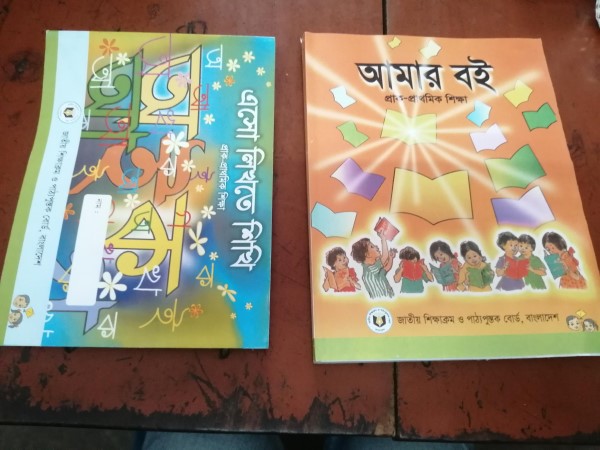

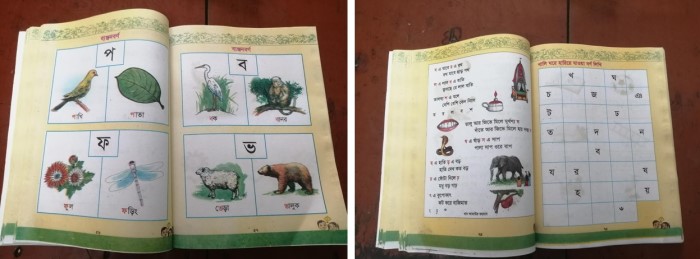
There are such childcare facilities in slums, and NGOs are actively involved.
Learning is also being conducted for kindergarten children at the SSKS nursery school run by an NGO in Paravi District, north of the capital Dhaka. The SSKS school is located in a residential area, but most of the children live in slums. Of the 198 students in the entire school, 25 are preschoolers. In January 2023, new students entered the kindergarten and classes for the new semester began.
For about a month after entering the kindergarten, the homeroom teacher intensively teaches the children how to handle school attendance books and school bags, and how to prepare notebooks, pens, and erasers necessary for studying. Also, in order for the children to be able to attend kindergarten regularly and to foster teamwork within the class, the teachers actively talk to the children and communicate with them.
When the Bengali class begins, the teacher first shows the Bengali letters and reads them out loud with the children.

In the practice of writing letters, the teacher writes a model on the blackboard according to “Let’s learn the letters! Bengali practice notes”, and the children follow the example. The teacher will rewrite the letters as many times as necessary, so the children can concentrate on practicing each letter.
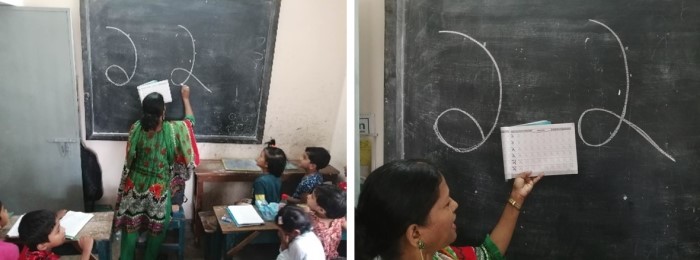
For children who are not good at reading and writing, the teachers cooperate with each other to carefully care for them.
Ms. Hashi from SSKS said, “I’m happy that I was able to create a free, fun and friendly class with the children. I’m sure they will continue to work hard to advance to elementary school.” Approximately 10% of kindergarten students are unable to review at home due to family circumstances, so teachers are said to be careful to ensure that they are able to learn enough in class.
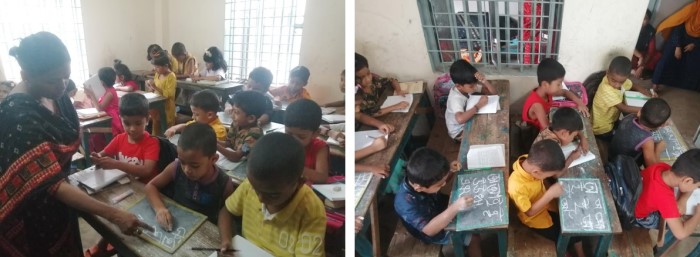
Kushi-chan, who attends SSKS school, lives with her mother, father, two older brothers, and a younger sister. She will migrate to Dhaka in 2022 as her Kushi family will build her home in her hometown in northern Bangladesh. Her two older brothers don’t go to school and work as seamstresses. Her father is also a rickshaw driver. With three people working in her family, she earns a household income of around Tk 40,000.
Her whole family enthusiastically supports Kushi’s studies, and her mother, who is a stay-at-home mom, watches over Kushi’s studies at her home.
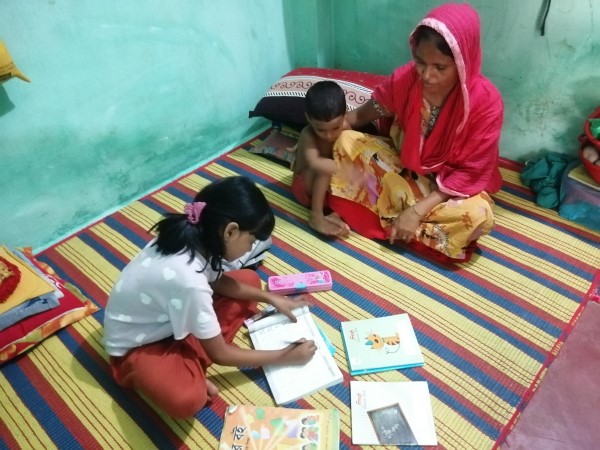

“It’s been 5 months since I entered SSKS school, and I’ve made friends. We always study together. That’s why I’m excited to go to school and study is fun,” says Kushi happily. .
One of the characteristics of SSKS school is that even after the preschool classes are over, the homeroom teacher takes responsibility for teaching all the children to write neatly and correctly. Thanks to this, by the time they finish preschool, they will be able to write neat and straight letters. In addition to the Bengali alphabet, the kindergarteners are also learning how to write English and Arabic numerals on a daily basis, and they are thoroughly learning both from the basics.

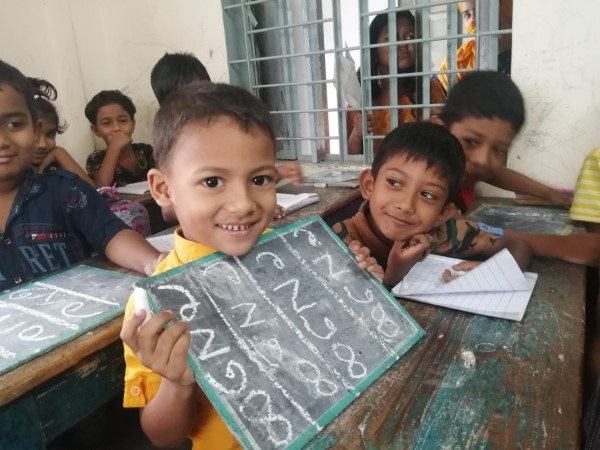
Teachers believe that by helping children learn to write, not only will they be able to study other subjects such as Japanese and English, but it will also broaden the options for children in the future.

The GENKI program will continue to support children.